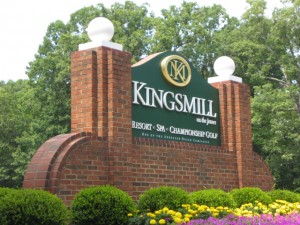Get your fence off my property!
Clients sometimes come to us with disputes regarding real estate litigation matters involving boundary line and easement encroachments. We provide legal advice and counsel, trying to balance your real estate rights with neighborly harmony, always looking to avoid a lawsuit when possible.
Easements provide a broad range of legal rights and obligations. In a fairly recent Virginia Supreme Court case, Snead v. C&S Properties Holding Company, a landowner blocked access to a validly recorded easement. The easement holder filed a lawsuit, asking the court to order the obstruction removed. The Virginia Supreme Court ordered the fence removed, concluding that “a significant portion of the easement would be rendered unusable for ingress and egress if injunctive relief were denied.”

What Should You Expect From Your Attorney?
I read a recent article in the ABA Journal that differentiated between the teaching of “issue spotting” versus “problem solving” in law schools. This article strikes at the core of the services we provide as attorneys. We believe firmly that although it is our responsibility to help identify potential issues that you may face, our legal advice is fully realized when we help you solve your problems.
Continue reading “What Should You Expect From Your Attorney?”
What Does It Mean to be on the Board of Directors of your HOA? Potential Liability (Part 2 of a Series)
We frequently are asked whether volunteer board members can be civilly liable for actions taken while a board member. This issue is of serious concern because lawsuits tend to be over inclusive, naming every possible defendant in the initial complaint. Why sign up as a volunteer board member if it could bankrupt you?

Part 2 on Virginia’s Unauthorized Practice of Law Rules and HOAs – What is considered the unauthorized practice of law?
We blogged previously about finding guidance in Virginia’s rules on the unauthorized practice of law as they pertain to community associations. In this post, we will review Virginia opinions that address whether certain work performed by managers is the unauthorized practice of law (“UPL”).

Can HOAs suspend pool privileges to collect unpaid assessments?
As summer begins and the temperature rises, people are eager to cool off in community pools. For homeowner’s associations and condominium associations, this can be an opportunity to encourage members behind in their assessments to get caught up.
Before an association starts suspending pool passes to encourage members to pay their dues, however, it should be aware of provisions in Virginia Law that affect what actions it can take. Both the Virginia Property Owners’ Association Act and the Virginia Condominium Act allow an association to suspend services (including use of common areas such as pools) for failure to pay assessments, as long as the association complies with certain requirements.

Swimming Pools and ADA
ADA Compliance – (Another) Update on HOAs, Condos and Swimming Pools
We have blogged about new requirements under the Americans with Disabilities Act (“ADA”) that may affect Homeowners Associations and Condominium Associations that own swimming pools, wading pools, or spas. Subsequently, we updated our previous post to report upon an update to the required compliance date.
The Justice Department has now issued a “final rule” revising “the Department of Justice regulations implementing the Americans with Disabilities Act to extend until January 31, 2013” as the compliance date for the ADA Standards for Accessible Design for existing pools and spas.
Consequently, if your HOA or Condo Association allows non-members of the association to use its pool in exchange for some form of compensation, your pool may fall under the definition of a public accommodation. If it does, the association would have to comply with the new ADA Standards and provide accessible entry and exits no later than January 31, 2013. What does that mean for your HOA?


Continue reading “ADA Compliance – (Another) Update on HOAs, Condos and Swimming Pools”
A Checklist to improve the effectiveness of your HOA Board of Directors
For your homeowners association, here’s a simple, but effective and invaluable checklist of suggested resolutions to improve the Board of Directors in your community association.
- Set-up your board of director orientation with Tarley Robinson, PLC. This service is provided at no charge to our clients. We will send out a an email and letter to schedule an orientation shortly after your board of director elections. Email us to make sure you are on our mailing list.
- Review your documents with your manager and attorney, or if self-managed, with your board and attorney, to determine whether you are operating in compliance with your documents and whether your documents comply with the law.
- Encourage civility, applaud the good deeds of neighbors and provide solid leadership. Remember that you are part of a community.
- Schedule an appointment with your insurance agent to review your current policies. Confirm that your policies comply with any insurance requirements in your documents. Find out if you should change your deductibles. Determine if you are paying the best price.
- Implement your Complaint Policy and Copying Policy. You are required to have them.
- Conduct efficient and effective board meetings. Spend some time working on the processes and procedures for your board meetings. Seek input from your board members, manager and attorney.
- Follow the legislation affecting community associations. The Virginia Legislative Action Committee will be working hard to review proposed legislation and determine its impact on community associations. Updates will be posted at http://www.cai-valac.org/
- Review your Reserve Study. Virginia law request annual review of your Reserve Study. If you do not have a Reserve Study to review, resolve to obtain one. It is the law.
- Conduct a risk assessment relative to safety and the use of your Common Areas or Common Elements. Follow-up with appropriate action, be it implementing safety rules, repairing an unsafe area or item, or posting a warning sign.
- Attend seminars provided by CAI. The Central Virginia Chapter Community Association Day, for example, is a daylong event that includes some great educational opportunities.
Tarley Robinson, PLC, Attorneys and Counsellors at Law
Williamsburg, Virginia
Does Virginia law require an HOA to transition automatically to homeowner control of the Board of Directors?
Over the course of the past few years, homeowners in the Williamsburg development of Kingsmill on the James have become more vocal over the continued control by the community’s developer, Busch Properties, Inc. In May 2010, Kingsmill resident and a William & Mary Law School professor filed a lawsuit against Busch Properties. On August 20, 2010, the Williamsburg/James City Circuit Court heard the demurrer filed by Busch Properties. The court granted the demurrer. The Plaintiff appealed to the Virginia Supreme Court. The Court declined to hear the appeal. The Plaintiff filed a petition for rehearing that the Court refused to hear by an order dated June 16, 2011.

HOA Transition
Okay, how do we establish a funding plan for our HOA’s Reserves? (Part 2 of a 3 part series on Reserves)
Once an association has obtained a reserve study, two questions arise: 1) Do we have to fund a reserve account? and 2) If so, how do we fund a reserve account?
The statutes for condominiums and property owners associations require an association’s budget to include, among other things, an annual amount to fund the reserve account that is consistent with the obligations in the reserve study. This means that an association should be placing funds into the reserve account that permits it to meet is obligations to repair, replace and restore capital components based on the estimated replacement cost, the estimated remaining life and the estimated useful life of the capital component.

Rental Restrictions in HOAs permitted according to the Virginia Attorney General
In many HOAs, an issue arises when a homeowner purchases real estate as an investment property intending to lease the home or condo unit. In those situations, the homeowner becomes a “landlord” rather than a resident owner and the situation causes concerns for many homeowner and condominium owner associations. Many association documents contain restrictions on leasing property. In response to an inquiry, the Attorney General for Virginia has issued an official advisory opinion concerning the imposition of rental restrictions in common interest communities concluding that if the restriction is adopted correctly and for a legitimate purpose, the rental restriction is valid.

Continue reading “Rental Restrictions in HOAs permitted according to the Virginia Attorney General”



